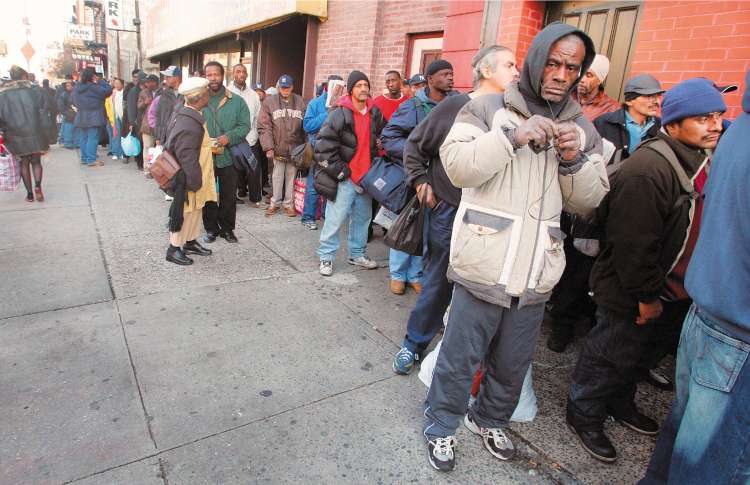Reich: Government Should Spend Even More
 Robert Reich sees a grim future on the jobs front:
Robert Reich sees a grim future on the jobs front:
Unemployment will almost certainly in double-digits next year — and may remain there for some time. And for every person who shows up as unemployed in the Bureau of Labor Statistics’ household survey, you can bet there’s another either too discouraged to look for work or working part time who’d rather have a full-time job or else taking home less pay than before (I’m in the last category, now that the University of California has instituted pay cuts). And there’s yet another person who’s more fearful that he or she will be next to lose a job.
His solution will shock no one:
Which brings us to the obvious question: Who’s going to buy the stuff we make or the services we provide, and therefore bring jobs back? There’s only one buyer left: The government.
Let me say this as clearly and forcefully as I can: The federal government should be spending even more than it already is on roads and bridges and schools and parks and everything else we need. It should make up for cutbacks at the state level, and then some. This is the only way to put Americans back to work. We did it during the Depression. It was called the WPA.
Even aside from the “Who’s going to pay for all this?” issue — which he explores in great detail in the rest of his post — there’s the question of efficacy. This ain’t 1933. Most of those hit by the current decline were in service industries — including those requiring rather substantial education and training — rather than unskilled laborers. Surely, Reich and his follow UCal professors who have suffered salary cuts aren’t going to supplement their income by repairing bridges or cleaning up parks?
No worries, though. In a few years, the Japs will bomb Pearl Harbor again, which will require a massive investment in our defense infrastructure. That’ll be just the boost we need.






There’s some good news for those who favor a policy of deficit spending to stimulate the economy: the empirical evidence for its efficacy is better when the unemployment rate is 12% or over. At this rate we’ll be there soon.
um, James the Muslims or was it Bush, I don’t remember, already bombed New York city, It lead to 5% percent unemployment and the greatest economy the world has ever seen all as the Democrats tried to undermine and cut military spending, But look were we are now, what happened.
So If the Japes are gonna help us again In the same scheme I think they might have to nuke or carpet bomb California.
Hell if if anything it will take care of most of our unemployment problems and illegal alien infestation.
Given that the BLS’s monthly report shows the greatest job losses last month were in heavy construction, I’d think that’s powerful evidence that more of the spending in the stimulus package should have been concentrated in 2009. The crowding effect I was worrying about doesn’t seem to be an issue.
Dave,
What is up with your blog?
Typical liberal. He advocates the government allocating spending more of what they haven’t been able to spend already. How ignorant can he be. The majority of the “stimulus” already passed will not get into the market until next year and he wants to do more of it.
If those infrastructure payments would go directly to reduced taxation and subsidies for small businesses then he might have an argument.
The cash for clunkers program is a microcosm of spending stimulus. The program simply moved sales foward, and now they are slumping again.
Reich is advocating the Japanese solution.
There was a problem early this morning which I guessed was related to some sort of domain name propagation thingee but I thought it had gone away. For example, when I use the link above, it works fine for me.
James, I think your unserious hope for a Japanese invasion illustrates that while we don’t like Reich’s no-surprise call for spending … there isn’t an easy or obvious alternative.
Well, the alternative is to tough it out.
On crowding-out and the whole idea that this recession was deep enough to swallow a stimulus package … I’ll just place here the gentle reminder that I said it might be. That possibility did not go down to well with OTBers.
FWIW, I think this is still a globalization story. That is something else that most people want to avoid.
Most of the stimulus money isn’t slated to be spent for years. And the recession is already over.
James, James, James. What a weak answer.
At least it is weak to anyone who knows (1) who knows who the National Bureau of Economic Research are, or (2) knows the weak relationship between GDP and employment, or (3) understands the possibility of structural unemployment going forward, or (4) has thought about the overhanging problem of record debt and that unemployment.
BTW, if you are hanging “the recession is already over” on Bernanke’s quote, look at the whole thing:
From “a technical perspective” indeed.
We used to define “recession” based on quarters of GDP decline. Now, we do so based on an evolving formula. Either way, it’s over.
Have we returned to status quo ante? No. Multiple bubbles burst and we’ve normalized.
Well, the reason I don’t usually argue “true-false” on “recession” is that it so often becomes this kind of game.
Something to consider though. No matter how we individually may judge recession, we all must accept the fact that in our system the National Bureau of Economic Research gets to decide. They have not called this recession over, and probably will not for months.
Why not? The answer is important. They are waiting for the possibility of a second dip to subside. Given that GDP numbers have been tilted by stimulus so far, by cash for clunkers, and by the homebuyer’s credit, I’m not sure that possibility is non-zero.
Are you sure James? Are you going to put a stake in the sand and say you are 100% confident that NBER will call the end of the recession on or before 10/2/2009?
What a joke. 9.8% unemployment is normal?
BTW, you have moved a long way off “crowding-out.”
Crowding out is not driven by the technical definition of recession. It is driven by the weight, or absence, of non-stimulus spending in the target area.
See also Dave’s comment “the greatest job losses last month were in heavy construction”
odograph – definitionally, unemployment levels do not determine whether we are in or out of a recession. But please, continue to move the goal posts as you please. Meanwhile back in the real world, the NBER will let us know in a year or two whether we are still in a recession now or not.
You lost the narrative there Charles.
We started with Dave’s comment regarding unemployment, stimulus, and crowding out.
James gave us a wrong turn to the technical definition of a recession, but as you (and I) say, the NBER will let us know in a year or two whether we are still in a recession now or not.
… but getting back ON topic, stimulus is about jobs, and preventing a reinforcing contraction in consumer spending. How do YOU think that spending will look, post cash for clunkers?
You want to reinforce consumer spending? Cut taxes. You can do that without the overhead, social engineering, and graft associated with so-called stimulus spending.
Are you saying that answer is always “cut taxes” charles?
If so, why didn’t that work in the Bush years? We had tax cuts, a very anaemic recovery mostly financed by the fed’s 1% interest rate, and then a crash brought about very much by that 1% interest rate triggering asset bubbles.